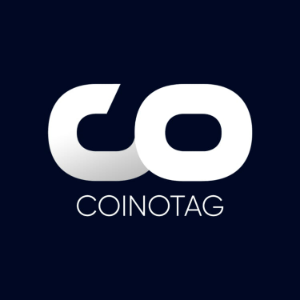Market Pulse
In a chilling revelation that underscores the escalating sophistication of state-sponsored cyber warfare, North Korea’s notorious Lazarus Group is reportedly intensifying its use of blockchain technology for stealth hacks and illicit fundraising. The group, known for its audacious cyber heists, is now employing increasingly elaborate social engineering tactics, including masquerading as legitimate job recruiters to infiltrate global firms and steal valuable digital assets. This concerning trend highlights a critical and evolving threat landscape for the cryptocurrency and blockchain ecosystem, pushing the boundaries of cybersecurity challenges.
The Evolving Tactics of the Lazarus Group
The Lazarus Group, believed to be an arm of North Korea’s military intelligence, has a long history of targeting financial institutions and cryptocurrency exchanges. Their methodologies have consistently evolved, moving from direct attacks to more insidious forms of social engineering. Recent intelligence suggests a significant pivot towards leveraging the decentralized nature of blockchain and the allure of lucrative crypto careers to lure unsuspecting individuals and organizations.
- Deceptive Recruitment: Attackers create highly convincing fake job offers, often for roles within major tech or cryptocurrency companies, distributing them through platforms like LinkedIn.
- Malware Delivery: Once a target engages, malicious files disguised as job descriptions, salary documents, or coding challenges are delivered, often containing sophisticated backdoor malware.
- Supply Chain Exploits: By gaining access to an employee’s system, the group can then move laterally within a company’s network, aiming to compromise internal systems, intellectual property, or financial assets linked to digital currencies.
- Focus on Digital Assets: The primary objective remains the acquisition of cryptocurrency, which is then laundered through various methods to circumvent international sanctions and fund North Korea’s weapons programs.
Why Blockchain? The Appeal of Digital Assets for Nation-States
For sanctioned nations like North Korea, digital assets and blockchain technology present a unique opportunity to bypass traditional financial systems. The pseudo-anonymous nature of many cryptocurrencies, combined with the global and borderless characteristics of blockchain networks, makes them ideal for covert operations and capital flight. The ease of cross-border transfers and the challenge in tracing funds across multiple chains provide a fertile ground for illicit activities.
Moreover, the burgeoning value of cryptocurrencies offers a substantial financial incentive. Successful hacks can yield millions, if not billions, of dollars, providing a critical revenue stream for a regime facing severe economic restrictions. This strategic weaponization of blockchain technology poses a direct challenge to global efforts in combating illicit finance and maintaining cybersecurity integrity.
Implications for the Crypto Ecosystem and Global Security
The increasing involvement of state-sponsored actors like the Lazarus Group in blockchain-related cybercrime has profound implications. For the cryptocurrency industry, it necessitates a significant reinforcement of security protocols, user education, and collaborative threat intelligence sharing. Companies dealing with digital assets are now on the frontline of geopolitical cyber warfare, demanding higher vigilance and robust defense mechanisms against advanced persistent threats (APTs).
From a broader global security perspective, these actions highlight the dual-use nature of emerging technologies. While blockchain offers immense potential for transparency and efficiency, its inherent characteristics can also be exploited by malicious actors. International cooperation among governments, law enforcement, and private sector cybersecurity firms becomes paramount to effectively track, disrupt, and deter such sophisticated state-sponsored attacks.
Conclusion
The revelation of North Korea’s escalated use of blockchain in its cyber warfare tactics, particularly through deceptive recruitment schemes, serves as a stark reminder of the persistent and evolving threats facing the digital asset space. This isn’t merely about financial theft; it’s about national security, geopolitical stability, and the integrity of the global financial system. As of {current_date}, the crypto community and cybersecurity professionals must remain hyper-vigilant, continuously adapting their defenses to counter these advanced and determined adversaries, ensuring that the promise of blockchain is not overshadowed by its potential for illicit exploitation.
Pros (Bullish Points)
- Raises awareness about advanced persistent threats (APTs) targeting the crypto space.
- Could spur innovation in blockchain security and threat intelligence.
Cons (Bearish Points)
- Undermines trust and perceived security of the digital asset ecosystem.
- Heightens regulatory scrutiny on crypto platforms regarding illicit finance.



